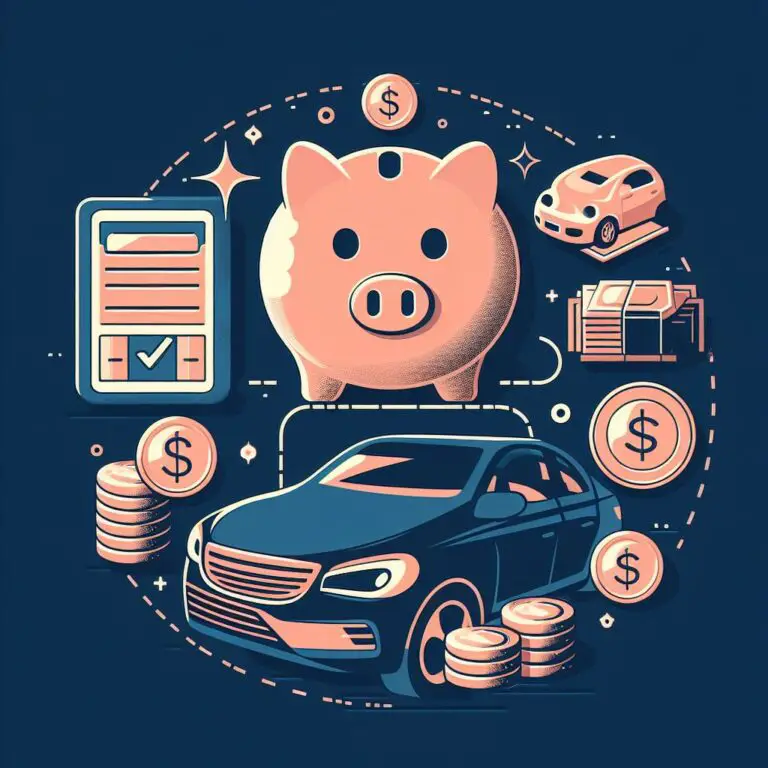How to Save Money as a Teenager
Last Updated on 11 February 2024 by Ryan Oldnall
Financial literacy is an important skill for anybody, including teenagers as it equips you with the knowledge and tools to make smart money decisions throughout your life.
Starting to save money during your teenage years comes with several advantages. It lays the foundation for future financial security, teaching you discipline and responsible money management.
It also empowers you to seize opportunities without financial stress. In this article, we’ll explore practical strategies on how to save money as a teenager.
Setting Achievable Financial Goals
Identifying both short-term and long-term financial goals is key. Short-term goals might involve saving for your first car or laptop, while long-term ones could include saving for college/ university or a future home.
Clear goals provide direction and motivation, helping you prioritize spending and saving. Without them, it’s easy to spend impulsively without considering future needs or dreams.
Every person has their own financial goals ranging from saving for a car to building an emergency fund or buying a house. The key is to make goals realistic and inspiring to help keep you motivated long-term.
Creating A Realistic Budget
Budgeting is about understanding your finances and planning how to use your money wisely.
To create a basic budget, start by calculating your income, listing your expenses, and setting spending limits. I go through this in more general depth in my article How To Save Money.
This process ensures that you allocate money for essentials like food and bills while also earmarking funds for savings.
Sticking to a budget can be challenging but is essential for financial discipline. Tips for success include tracking your spending, cutting unnecessary expenses, automating your finances, and finding creative ways to save.

Earning Money
Part-time job opportunities provide you as a teenager with a chance to earn money and gain valuable work experience.
Beyond earning money, these jobs teach the importance of a strong work ethic, responsibility, time management, and working as part of a team. These are all skills that will set you up later in life as you move into full-time employment.
However, in today’s society, traditional employment isn’t the only option available to you.
Freelancing and online gigs can be lucrative alternatives, offering flexibility and the opportunity to pursue your interests while earning. If you have a skill that can be performed online websites like Fiverer and Upwork, are good places to earn money.
Whatever your choice, earning money as a teenager can jumpstart your savings journey and prepare you for financial independence.
Savvy Saving Strategies
Saving strategies are essential for building a healthy financial foundation. One key strategy is opening a savings account. Finding a “High interest savings” account is a real bonus, as your money will do more for you.
Opening a high-interest savings account provides a secure place to keep your money while earning interest. Over time, this interest can add up through what is known as compounding. Compounding interest is a great way to accelerate your savings growth.
With record-high interest rates, many homeowners are struggling with their home loan rates. However, as a non-homeowner, you are in a very fortunate position where banks can offer you higher savings interest rates. So make the most of this opportunity!
To make saving a habit, it’s important to set aside a portion of your earnings regularly. Even if it’s a small amount, consistent savings can accumulate over time – remember compound interest!
It’s equally important to avoid impulsive spending. Resisting the urge to make spontaneous purchases helps ensure that your hard-earned money goes toward your financial goals.
Cutting Expenses
Distinguishing between needs and wants is a valuable skill when it comes to saving money.
Needs include essential expenses like housing, food, and transportation, while wants encompass non-essential items like entertainment and luxury goods. By prioritizing needs over wants, you can save a significant amount.
Tips for reducing everyday expenses include shopping smartly by comparing prices and looking for discounts. I personally will research an item and sit on the idea for 2+ weeks. If after that time I still think it’s a good idea, I’ll make the purchase guilt-free.
Again, strategies for saving on big-ticket items involve researching before making a purchase or considering second-hand or refurbished options. Being mindful of your overall spending habits can free up more money to put toward savings.
So when considering that next iPhone purchase. Will it really improve your life, is it really better than your current phone, would it do just as much as a phone half the price? Chances are you’ll probably drop it anyway!
Avoiding BAD Debt
High-interest debt can quickly erode your savings and financial stability. This is my number one tip for in How To Save Money, There are many ways to save money money as a teenager, and avoiding bad debt to begin with is a great start!
It’s important to use credit cards responsibly, understanding that they’re not free money but rather a form of borrowing. Paying off your credit card balance in full each month can help you avoid high interest charges.
This goes for other types of bad debts such as personal loans and car loans. If the item that you purchase with the loan depreciates (loses value), then chances are it’s bad debt.
Strategies for preventing debt include setting a budget and sticking to it, only using credit when necessary, and considering alternatives like debit cards or cash for everyday expenses.
Building a habit of responsible credit card use at a young age can protect your financial future.
I personally have nothing against credit cards. I successfully applied for my first credit card at 18 with a $500 limit. However, not once did I ever pay interest on it and I automated the repayments to ensure this.
I used the credit card to cover any shortcomings but never spent beyond my means.
Investing for the Future
Investing is a way to make your money work for you over the long term. While it may seem intimidating, there are investment options suitable for teenagers, such as stocks, mutual funds, and ETFs.
Investing involves some level of risk, but it also offers the potential for higher returns compared to traditional savings accounts.
Understanding the concept of risk and reward is essential in investing. Generally, higher-risk investments have the potential for higher returns, but they also come with greater volatility.
On the other hand, lower-risk investments may offer stability but tend to have lower returns. Diversifying your investments, seeking advice from financial professionals, and learning about different investment vehicles can help you make informed choices for your financial future.
Investing in general is a very broad and detailed topic. Some good starting points would be my articles around Passive Investing, Dollar Cost Averaging, and more detailed discussions on different ETFs.
For those in the US, ETF VOO vs SPY, and for those in Australia, IVV vs VGS
Learning from Mistakes
Mistakes are a natural part of the learning process, especially when it comes to managing money. It’s crucial to view these financial mistakes as valuable learning opportunities.
Whether it’s overspending on non-essentials, not meeting your savings goals, or making a poor investment decision, each mistake can teach you something important.
One effective way to learn from these experiences is to reflect on what went wrong and why. By understanding the root causes of your financial mistakes, you can develop strategies to avoid repeating them in the future.
This self-awareness and continuous improvement are key to becoming financially savvy.
Additionally, consider seeking advice or mentorship from adults who have experience in managing money. The flip side of this, learn from those who have made mistakes or have bad financial management.
Understand what led them to make the decisions they did, what they learnt from it, and how/ if they solved that situation long term.
You don’t always have to try to emulate the successful people in your life, you can also learn from those who did it tough.
Conclusion
In summary, saving money as a teenager is not only possible but also a vital skill that sets the stage for a financially secure future.
Understanding the importance of financial literacy, setting clear financial goals, creating a budget, and earning money are the foundational steps.
Furthermore, saving strategies, expense management, debt avoidance, and investing for the future are crucial for building wealth over time. Remember that financial success is a journey, and learning from your mistakes is part of that journey.
With determination, discipline, and the knowledge you’ve gained from this article, you can make wise financial choices, no matter your age.
By starting early, you’re giving yourself a head start on the path to financial independence and security.
So, take control of your finances, set your goals, and begin your journey toward a brighter financial future as a teenager.







